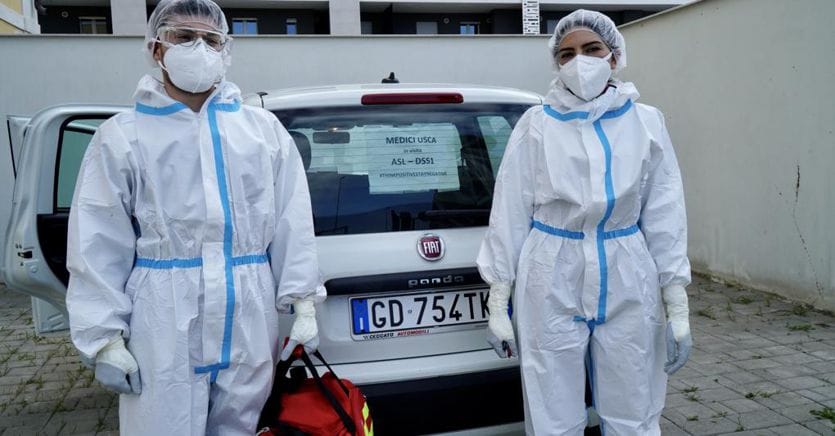They were born in a hurry in the middle of the pandemic during the first dramatic wave of Covid with a decree of March 2020 (14/2020) and are now preparing to enter the National Health Service on a permanent basis thanks to the budget law just passed by the Government which allocates 67 million in 2022 and then 101 million a year until 2026. They are the “Usca”, the special assistance continuity units, or “Uca” (in the future they should lose the “s” for “special”) invented to knock at the home of Covid patients to carry out swabs and make the first diagnoses and treatments. Now after the field test and a spread after almost two years still patchy – not all Regions have activated them in the expected number – the goal is to create at least one for every 100 thousand inhabitants and therefore 600 throughout Italy. They are made up of micro-teams made up of at least a doctor and a nurse with the task not only of continuing to monitor Covid patients in this fourth wave, but in the near future to follow the more complex patients discharged from hospitals at home or to make programs prevention (such as vaccinations) in schools or RSAs.
If the maneuver now arriving in Parliament allocates the resources, it is the draft document developed by Agenas and the Ministry of Health on the “Models and standards for the development of Territorial Assistance in the National Health Service” to draw the idenitikit of the Usca for the next few years. Which is defined as a «district mobile team for the management of particularly complex clinical-care conditions and with proven operational difficulty in taking charge of both individuals and communities».
According to this document, which in the coming weeks should collect the green light from the Regions – it is one of the crucial measures envisaged to spend the resources of the Pnrr on the territory – the Usca or Uca will be composed of at least 1 doctor and 1 nurse for every 100,000 inhabitants and will operate on the territory. also through the use of telemedicine tools such as television or tele-assistance. The Usca will also be able to take advantage of the remote support (teleconsultation) of local and hospital specialists and may “possibly be integrated with other professional, health and social and health figures”.
The Usca does not replace but supports for a defined time the professionals responsible for taking care of the patient and the community. And as mentioned “it can be activated in the presence of clinical and assistance conditions of particular complexity and proven operational difficulty in taking charge”.
The document on standards provides for some specific conditions in which the Usca can intervene: this is the case, for example, of the difficult discharge of a patient from the hospital to support at home “in particular situations of clinical instability or emerging diagnostic / therapeutic needs” and then for the “care and follow-up of home patients during epidemic outbreaks” (in practice what was done with Covid between tampons and therapies at home), but also territorial prevention programs such as, for example, heat waves, home and at-home vaccinations Rsa or nursing homes for more “fragile” patients as well as targeted interventions in schools, in communities that are difficult to reach.
